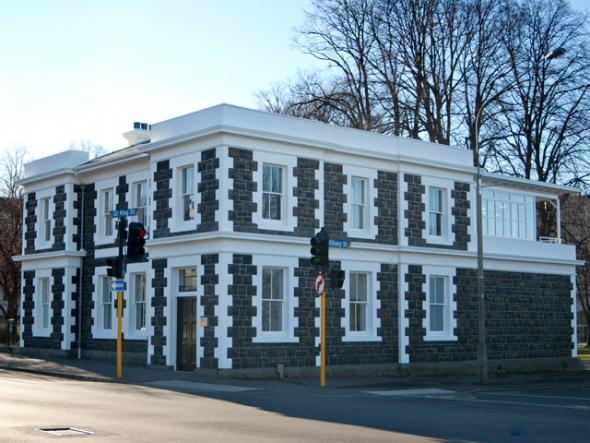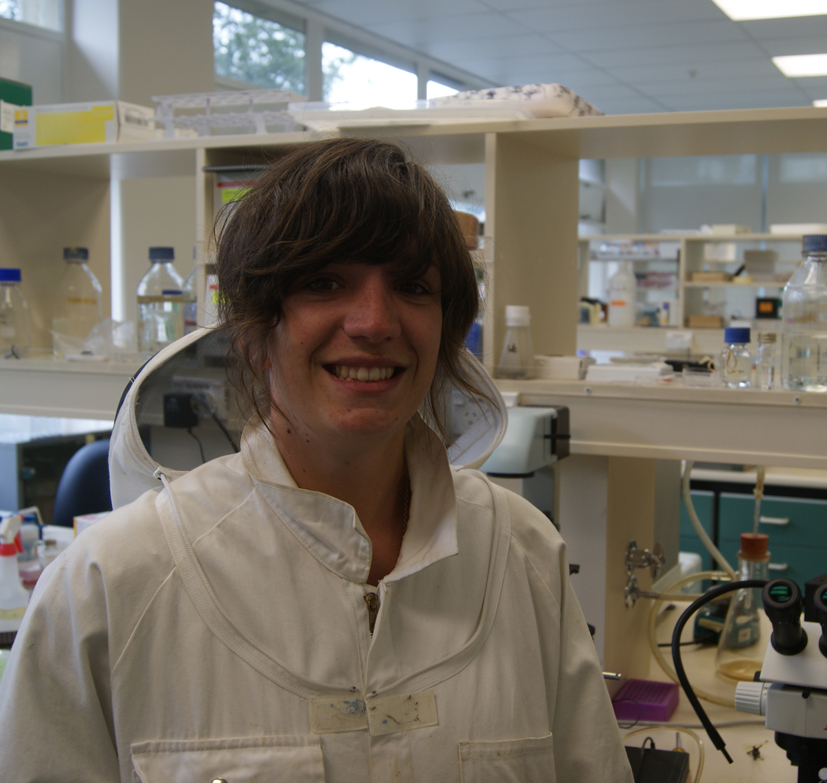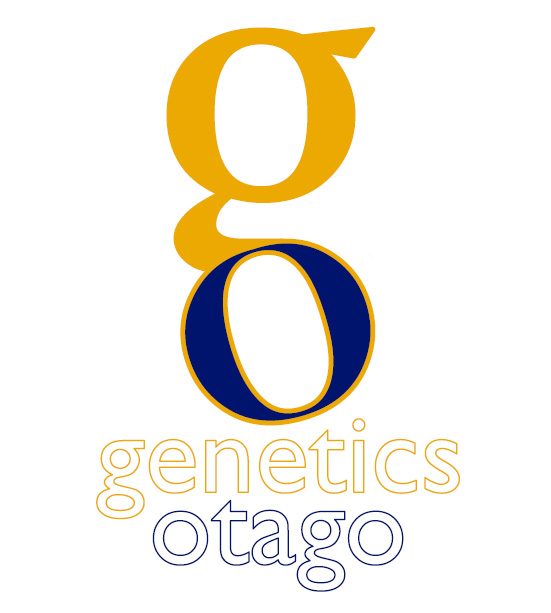Developmental and genetic research at Otago: Genetics Otago symposium 28-29th November 2013
Posted by Megan Wilson, on 2 December 2013
Meeting report for Genetics Otago symposium 28-29th November 2013.
The annual Genetics Otago symposium was held in the newly refurbished HD Skinner Annex of the Otago Museum in sunny (yes, really!) Dunedin, New Zealand at the end of November. This two-day symposium is run annually by Genetics Otago, a Research Centre of the University of Otago, which has over 240 members based at Otago and right across New Zealand. This year the meeting brought together plenary, guest and postgraduate speakers from Otago and across NZ, in addition to invited speakers from overseas (Australia, Czech Republic). Highlighting the diversity of genetics research, presentation topics ranged from the genomics of NZ stick insects, liver disease, gout, brain development, chordate evolution through to cancer genetics. Below are a few highlights; for more details check out the Storify of the live tweeting from the symposium: http://storify.com/ANZSCDB/geneticsotago-symposium-2013.
Professor Vicky Cameron’s (Christchurch Heart Institute) group has been studying the genetics of susceptibility to Takotsubo cardiomyopathy or broken heart syndrome, cases of which increased following the two Christchurch earthquakes, especially in post-menopausal women. She and Professor Martin Kennedy, also of University of Otago Christchurch, are championing differing hypothesis for the genetic origin of this condition – a single, rare causative gene mutation versus a ‘perfect storm’ of contributing SNPs.
Dr Amy Osborne (Laboratory for Evolution and Development) spoke about her work identifying the mechanisms behind transgenerational inheritance and the predictive-adaptive response (“Are you what your great grandmother ate?”) where various behaviours or health conditions can be inherited without DNA sequence changes. In work leading on from the PhD of Sarah Morgan, Dr Osborne has been making use of Drosophila to investigate nutritionally derived transgenerational inheritance in the F3 population following feeding of the F0 generation on a restricted diet.
Sophia Cameron-Christie, a PhD student with Professor Stephen Robertson, presented on the genetics of biliary atresia, a developmental disorder of the bile duct, which is usually only treatable by liver transplants in children affected by this condition. Sophia is using exome sequencing and linkage analysis on samples from a NZ family to identify susceptibility loci. Two other PhD students from Professor Robertson’s group also presented their PhD work, Adam O’Neil on periventricular heterotopia and neuronal migration, and Emma Wade on mechanosensing and bone density.
Professor Neil Gemmell (Department of Anatomy) spoke on his work on the increasing evidence that the mitochondrial genome has an important impact on sperm fertility and function, through a phenomenon termed ‘Mother’s Curse’ – whereby incremental mutations can accrue of no selective disadvantage to the mother, but are detrimental to sperm performance, sperm having far fewer mitochondria and more intense energy requirements than oocytes.

Tess Sanders (a PhD student from Dr Christine Jasoni’s group) spoke on how the maternal environment affects foetal brain development. It is well established in humans and other mammals that if the mother is obese, there is a much higher risk of the child being obese. Tessa is studying gene expression changes and axon guidance in the arcuate nucleus, the part of the brain that receives signals whether to eat or not to eat, and has found molecular evidence that gene expression in this part of the developing brain of the embryo alters depending upon the diet of the mother.
Dr Nic Waddell (Centre for Medical Genomics, University of Queensland) gave a excellent talk updating us on the ICGC (International Cancer Genome Sequencing) initiative, in particular where they are at with the Australian focus of the project, whole genome sequence analysis of pancreatic cancer, which has a very high mortality rate in those afflicted.
Associate Professor Andrew Shelling from the University of Auckland spoke on the role of Foxl2, a transcription factor they identified as playing a role in premature ovarian failure in NZ families. In initially unrelated work, his group also found point mutations in FoxL2 in many granulosa cell tumors and are now carrying out knockdown and overexpression studies in cell lines to determine how Foxl2 acts to cause ovarian cancer, and comparing this to its misfunction in premature ovarian failure

We were very pleased to have the ANZSCDB support a postgraduate speaker prize and with 12 high quality student speakers it was a hard decision for the judges. In the end, the award was presented to Megan Leask, currently writing up her PhD with Associate Professor Peter Dearden, who investigated the molecular mechanisms behind phenotypic plasticity using the honeybee as a model – whereby dietary differences (i.e. the feeding or otherwise of royal jelly to larvae) drive the development of very different adult organisms (queens vs workers). In the hive, worker bee ovaries are repressed due to the presence of a queen in the hive; in the absence of the queen, the worker ovaries become activated and they start to lay eggs. Megan used microarray and RNA-seq, chromatin-immunopreciptation (for epigenetic marks) and drug inhibitor functional studies to understand the molecular changes that occur, both gene expression and chromatin organization, for ovary reactivation, and hence may give us a better idea of how this phenotypic plasticity works at the molecular level. Sophia Cameron-Christie and Tess Sanders won the GeneticsOtago Speaker award.
This was the 5th year for the Genetics Otago Annual Research Symposium, and it was again a big success. It is becoming so popular that registrant numbers had to be capped this year, but given the strong interest from outside Otago, next year’s meeting will be extended, with more researchers from the North Island encouraged to attend. Looking forward to it already!
—– Dr Megan Wilson, ANZSCDB New Zealand representative and Genetics Otago member; Developmental Biology Laboratory, Department of Anatomy, University of Otago.



 (1 votes)
(1 votes)